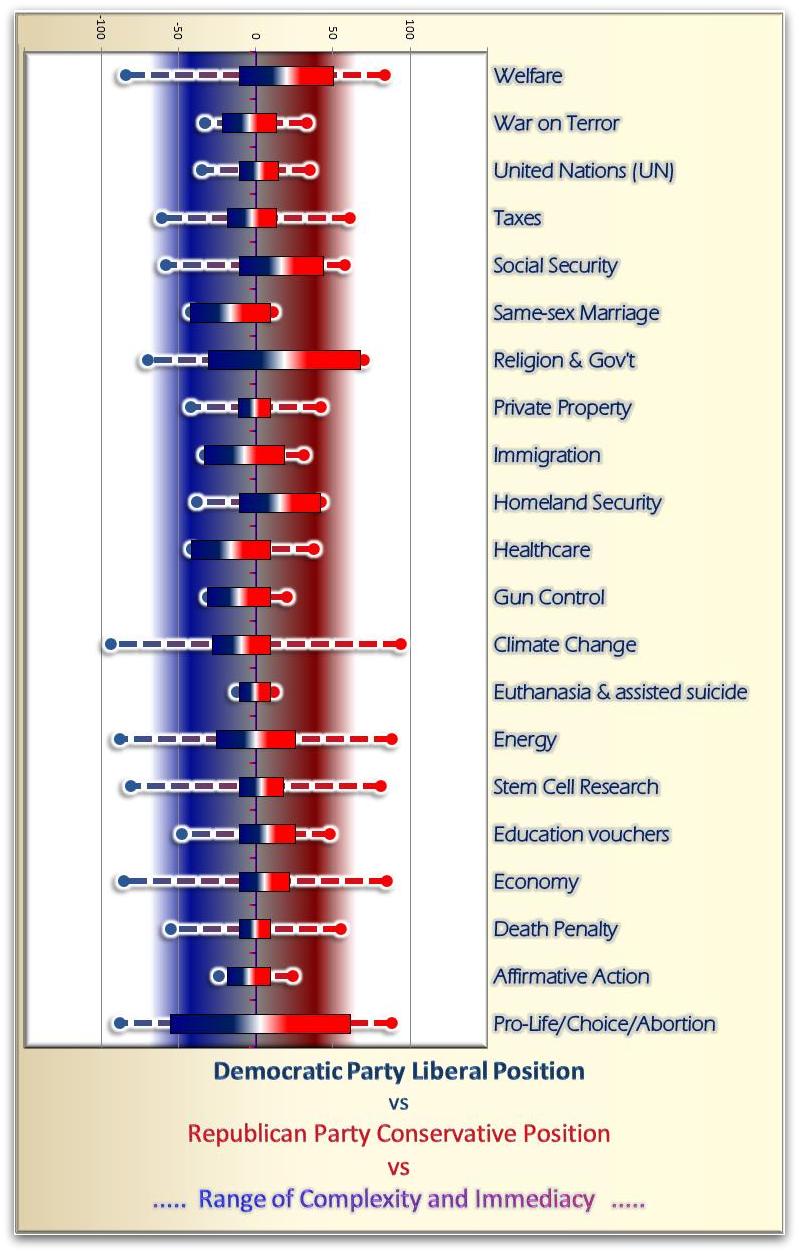"I think I played a role, unfortunately, in helping tear the country apart." ~Glenn Beck.
America is effectively divided, politically speaking.
The middle ground discussions and collaborations we remember are gone from Congress and the upper-level political arena in general. To a some degree, the media and the two major political parties are responsible.
The middle ground discussions and collaborations we remember are gone from Congress and the upper-level political arena in general. To a some degree, the media and the two major political parties are responsible.
The average American until recently was a moderate with both liberal and conservative leanings depending on the issue. The media and political parties cannot be so. They deliberately share no discernible common goals, leaving them with just their marketable opposing positions and the mandate to win. Now the public is following their lead.
In an interview with Fox News' Megyn Kelly, Beck reflected on his part, saying there were things he wished he could do over.
"I remember it as an awful lot of fun and that I made an awful lot of mistakes, and I wish I could go back and be more uniting in my language," Beck told Kelly. "I think I played a role, unfortunately, in helping tear the country apart."
"I didn't realize how really fragile the people were," he continued. "I thought we were kind of more in it together."
“I believe that we are in — I think we're a country in civil war. I just think we're in a cold civil war. Shooting hasn't started, but somebody stupid is going to do something stupid and it will escalate unless we talk to each other.”
–Glenn Beck
Beck said instead of highlighting all the problems in the country he should have looked at more of the "uniting principles."
"Now I look back and I realize if we could have talked about the uniting principles a little bit more instead of the problems," he said. "I think I would look back at it more fondly. But that's only my role." True; he was not the only voice, and Fox News was not the only channel following the same trend.
"Baran saw the media’s role as a unifying force that contributed to national cohesion; a shared identity and sense of purpose. With more specialized channels at their disposal (political or otherwise) then Americans would have very little overlap in the messages they received. This, Baran believed, would lead to political instability and increased “confrontation” ..." ~Smithsonian HistoryThe aggregation and specialization of mass media in the United States over the past half a century has undoubtedly led to the stark “differing models of reality” that Baran describes. Differing models of reality - that's a polite reference to narrow-minded and uninformed. The true believers of any ideology will adhere to the party line and draw strength from their particular team’s media outlets.
Partisan polarization now cripples the nation's government and leaves no place for people of conscience whose best option is the lesser of the great evils. It drives wedges in families, communities, and between friends. It ruins friendly conversations and spoils good intentions.
Perhaps we should spend more time in gracious conversation with folks who disagree with us. They may know some things we don't.
Perhaps we should spend more time in gracious conversation with folks who disagree with us. They may know some things we don't.
Thanks and a hat-tip to Republicans and Democrats in Congress and the White House who obligingly enabled and engaged the moneyed media corporations. News is now a product for profit rather than a service.


